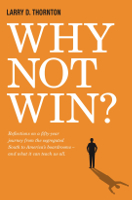Image by Frank Winkler
I
“You talk about serving my community and designing my future and a lot of other things. I don’t have time for that!”
Time can be one of our most illusory possessions. We all at various moments tend to think we have more or less time than we do. Naturally, therefore, we tend to abuse time, or fail to capitalize on it, without even realizing what we are doing.
The mindset of thinking that we have more time than we actually do, often leads to procrastination and costly delays. The mindset of thinking that we don’t have enough time can cause us to eliminate and/or omit worthwhile and rewarding projects.
Mastering Sixteen Hours
I have discovered that mastering our time can change our whole world. If I could pick a single most important lesson that I would share with my family, it would be the discipline of time well-spent. After all, if we really thought about it, not much would take greater precedence or have greater significance than our time.
While there are twenty-four hours in a day, there are significantly fewer hours during which we can truly be productive. The average amount of time we have for productivity, after subtracting a much-needed eight hours of rest, is about sixteen hours. When I learned to become a better steward of those sixteen hours, my whole world changed. With that in mind, I invite you to consider what I think of as seven principles of effective time stewardship.
1. Seek Balance
With only sixteen hours to utilize in a day, balance is essential. Creating and nourishing a body that thinks and functions properly requires rest, but spending too much time resting at the expense of activity or too much activity at the expense of rest is almost always self-defeating.
In all things we must find BALANCE. Learning to respect the inseparable relationship between rest and activity aids in our ability to see more clearly why our sixteen hours are an extremely valuable asset.
We all could do a better job of extracting more from our sixteen hours— claiming more of a return from the hours that we spend with employment; more from the hours that we spend with our family and friends; more from our playtime and leisure time, our spiritual, personal and professional development, health and wellness, our downtime, reflection time; and perhaps even more from the time we spend in support of others.
Doing so, however, is easier said than done. So many of us never seem to have enough time. Others, on the other hand, awe us as to how they do it all. These people—obviously engaged—always seem somewhat serene and unruffled, generally available, and unrushed. They even appear to anticipate new opportunities, which, naturally, will require even more of their finite time. So what secret deal did they cut with time? Do they know something that we don’t?
The truth is that none of us enjoys preferential favor with time. We have all been dealt the same hand—twenty-four hours a day. And one day will render only about sixteen hours of activity. Our challenge, therefore, is to convert activity into productivity.
2. Don’t Lose Track of Time
We tend to trivialize the idea of “losing track of time.” We use this phrase frequently and frivolously in our daily experience. Sometimes we are completely unconscious of its larger and more profound relevance to our very lives.
Whether we refer to time spent with our families, time spent updating our wills, or time spent initiating the next phase of our financial plans, this “losing track of time” is the culprit that contributes most significantly to time abuse.
The fact is that when we consider just how little time we really have, it’s easy to see that we quite literally have no time to lose. At some point, we have to ask the question: What am I going to do with this little time and this little energy that I am so privileged to have? This begs an even greater and more profound question: How can this little time and this little energy that we have possibly accommodate our vast and great desires?
Taking advantage of as many opportunities as possible to extend our personal, professional, and spiritual reach is essential. And, when we set out to create an environment that facilitates our reach to those around us, we inevitably spend time developing our own character. This approach constitutes a great start in accounting for our available time.
3. Seek to Invite Order
Much of the productivity we seek may be found simply by taking a more ordered approach to our available time. It is said that where there is order, there is little to do. Organizing our sixteen hours can create the appearance of more time much the same as the illusion of more space appears when we reduce clutter and organize our garage, our cabinets, drawers or luggage.
Several years ago, I found myself faced with the dilemma of a scheduled bank board meeting at which I was to make a presentation, as chairman of our audit committee, while I had a crucial McDonald’s marketing conference call scheduled for the same time. After attending a portion of the meeting and making my report, I was allowed to take my conference call in the office of the bank chairman, Richard Anthony.
I was struck by how well-organized everything in Anthony’s office appeared. I was particularly impressed with his desk and work area. How could the chairman, president and CEO—and one of the most unassuming individuals that I know—of a large banking system maintain a work area so organized? He must have hundreds of letters to read, documents to review, and contracts to sign. This caused me to visualize my own business and my own desk and work area at that time. I will admit that the contrast was humbling.
Wondering if Anthony’s superior system of organization had somehow been quickly arranged to impress me, I found ways to visit his office at future board meetings. What I found was more of the same. It was as if no work went on there ever. But clearly it did, as was evident from our board discussions at every meeting.
Acting on such observations, I found numerous opportunities to immediately take a more ordered approach to letters and documents, emails, returning calls, scheduling, and various other daily business tasks. My new attitude was “handle it now” and “share the load.”
Incredible responsibility demands incredible order. For me, the lesson was clear. The more order you invite, the more time you’ll have.
4. Don’t Be Late
Being habitually late, I think, sends an irrevocable message that voids the significance of just about any individual and/or their purpose. Plainly stated, when we’re late, we lose—end of story. Whether late for an appointment, late on an assignment, late in acting on a new idea, or late in planning, we are more often than not too late to take advantage of opportunities.
Early in my career, a gentleman of great success and stature said to me that as much as eighty percent of my success would be contingent upon my showing up . . . AND SHOWING UP ON TIME, he added with emphasis. I never forgot those words of admonition.
We’re just too busy, too consumed—or so we think. We’re just so pre-occupied, too involved—or so we think, with the mundane, ordinary and commonplace issues of life that we rarely get to that real area of self-actualization—that area that genuinely represents our truer image and innermost personal conviction. Developing a nonnegotiable appreciation and respect for time tends to create tremendous opportunities for personal growth. It really is a matter of time—and planning accordingly.
I’ve grown to realize that, generally, we don’t plan to be late. Instead, we fail in our planning to be on time.
5. Conserve Time
Few things bring me more pleasure than spending a slow Sunday afternoon preparing a large meal for the week. When I’m finished, I enjoy the fruits of my creation, preferably with family and friends. But before I put away the leftovers, I usually separately store three to four single-servings for future meals.
I never gave this convenience and time-sensitive approach a second thought until a dinner guest inquired about my rationale. It didn’t take me long to make my case. It just seemed like a better approach than removing all the food from the refrigerator each time I needed to reheat a single serving.
There must be hundreds of similar examples that illustrate time conservation—from packing to avoid baggage claim on short trips to putting certain things (like car keys) in specific places. Even putting things back where they belong, as simple as it sounds, is a great timesaver. Thinking and planning ahead probably represents the single most significant opportunity for making the most of our sixteen hours.
6. Don’t Stop for Yield Signs
How frustrating it is to be driving behind someone who chooses to come to a complete stop at a yield sign. Perhaps the person is stopping out of fear, in the interest of safety (from their perspective), or just not paying attention. The same might be true in our own daily experiences. We will often bring our normal living to a complete standstill for the same reasons—for fear, in the interest of safety and security, or just not paying attention. We stop for what could be a simple yield.
Clearly, life presents situations that both demand and even deserve our complete and undivided attention. But maybe it isn’t always necessary to stop completely when faced with a curve or obstacle on the road of life. Some circumstances might require only a respectful pause.
I think the challenge, as we seek to become better stewards of our sixteen hours, is to question those things that we stop for and simply ask, “How often am I stopping for yield signs?” and “Am I missing significant opportunities to get on with and improve my life?” It is not always an easy choice to stop or to yield, but it is a choice. It is, in fact, your choice!
7. “Stitch” Character
“A stitch in time saves nine,” the old proverb says. But too often, rather than managing through “strength of character” on the front end, we spend too much time trying to stitch together and mend poor performance on the back end. This is one of the more consistently missed opportunities in business.
Work is the premier consumer of our sixteen hours in so many cases. We absolutely cannot afford to miss the added-value opportunities that most employment settings provide. So often we go to work, get our checks, claim our benefits, and feel that we have been reasonably compensated.
Too often we don’t realize, recognize, or take advantage of the tremendous people opportunities, relationship opportunities, and personal growth opportunities that are left on the table. These unspecified benefits are usually ours for the asking.
We can all learn by taking advantage of the exposures and educational wherewithal of others, travel experiences of others, and even life-altering experiences of others. Time does not allow us to read everything, go everywhere, or do all that we’d like to do. But by paying attention to lessons all around us, we may come closer to attaining our own goals without the expense or time investment it would take to learn in conventional settings.
To My Daughter...
So there you have it. Seek balance. Don’t lose track of time. Seek to invite order. Don’t be late. Conserve time. Don’t stop for yield signs. Stitch character. Each of these principles recognizes the intrinsic value of time. Actualizing our personal, professional, and spiritual goals depends on it.
To my daughter, I would say: understand that time is one of your most valuable assets. Plan your time well, guard your time always, conserve and save your time wisely. Don’t waste your time in your earnest efforts for designing a better path for yourself and others.
Copyright ©2023. All Rights Reserved.
Book by this Author: Why Not Win?
Why Not Win?: Reflections on a Fifty-Year Journey from the Segregated South to America’s board rooms – and what it can teach us all
by Larry D. Thornton.
 This book is a front-row seat to how one man altered his thinking to transform his life. The book begins with Larry Thornton growing up with brown skin in the 1960s in segregated Montgomery, Alabama. A desegregation school pioneer, Larry was a classroom failure until a perceptive English teacher showed him he had value and encouraged him to go to college.
This book is a front-row seat to how one man altered his thinking to transform his life. The book begins with Larry Thornton growing up with brown skin in the 1960s in segregated Montgomery, Alabama. A desegregation school pioneer, Larry was a classroom failure until a perceptive English teacher showed him he had value and encouraged him to go to college.
Larry's journey from Madison Park, Montgomery, has been a long one. Why Not Win? reflects on his most useful lessons and the anecdotes associated with them. If he were a Zen monk, his koan might well be: “Plan your past.” By that he means, think ahead one day, one week, one year, even twenty years out, and decide today your desired outcome, and work for it. “Thank God for memories,” he says; “Let’s plan to make them pleasant ones.”
Click here for more info and/or to order this hardcover book. Also available as a Kindle edition.
About the Author
 Larry Thornton is an artist, entrepreneur, and servant leader. Growing up in segregated Montgomery, Alabama, he worked his way from sign painter to advertising manager at Coca-Cola Birmingham, and became the first African American to open a McDonald’s franchise in Birmingham, Alabama. He eventually opened multiple stores and created Thornton Enterprises, Inc. His book, Why Not Win? A Reflection on a 50-year Journey from the Segregated South to America’s Boardrooms — And What it Teaches Us All (NewSouth Books, April 1, 2019), serves as inspiration for people from all walks of life. Larry founded the Why Not Win Institute to make leadership development accessible. All book sales profit goes to support the institute’s mission.
Larry Thornton is an artist, entrepreneur, and servant leader. Growing up in segregated Montgomery, Alabama, he worked his way from sign painter to advertising manager at Coca-Cola Birmingham, and became the first African American to open a McDonald’s franchise in Birmingham, Alabama. He eventually opened multiple stores and created Thornton Enterprises, Inc. His book, Why Not Win? A Reflection on a 50-year Journey from the Segregated South to America’s Boardrooms — And What it Teaches Us All (NewSouth Books, April 1, 2019), serves as inspiration for people from all walks of life. Larry founded the Why Not Win Institute to make leadership development accessible. All book sales profit goes to support the institute’s mission.
Learn more at larrythornton.com.




























